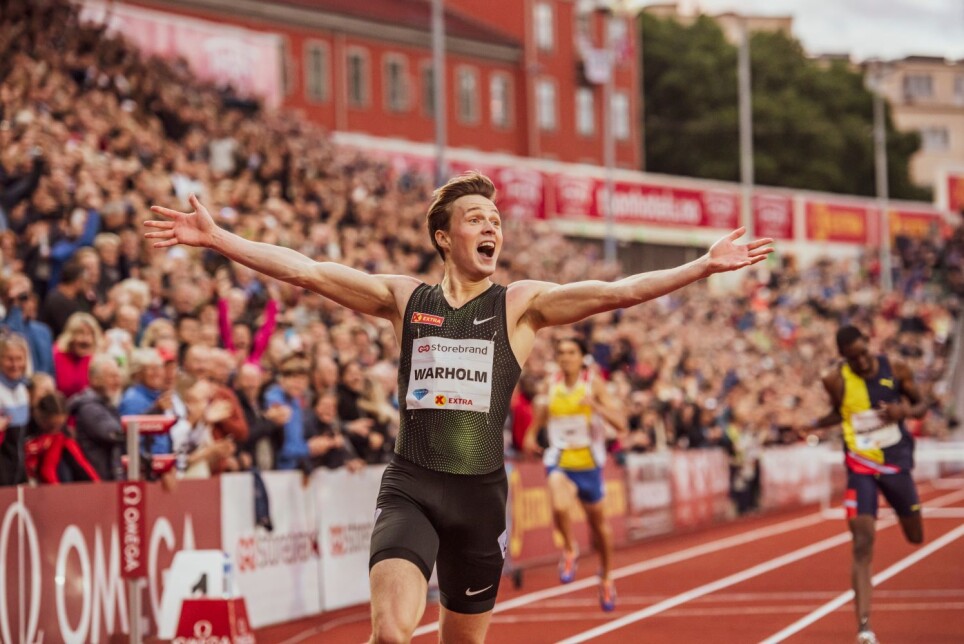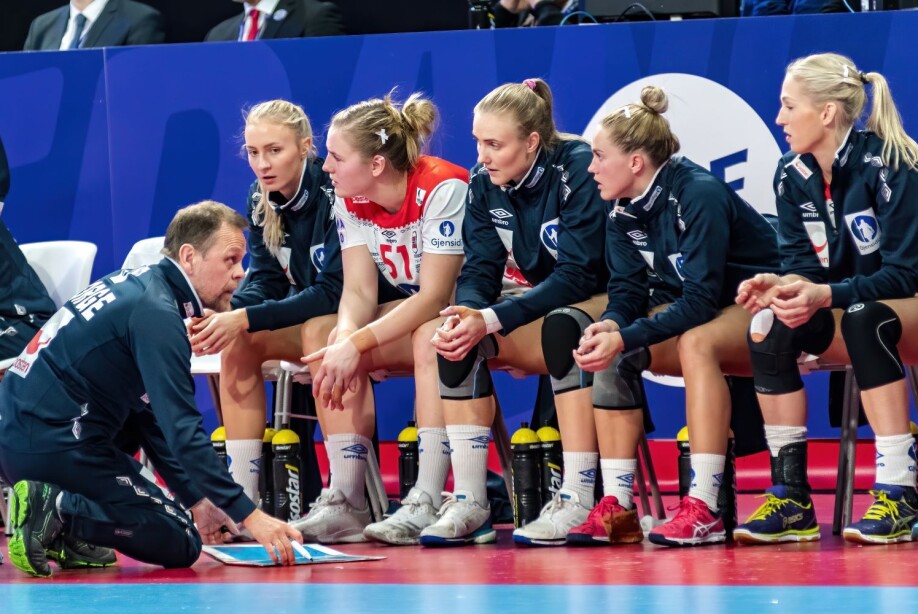THIS ARTICLE/PRESS RELEASE IS PAID FOR AND PRESENTED BY The Norwegian School of Sport Sciences - read more

To become a world champion, communication is more important than you think
What is the secret behind sports success, world championship medals and an effective coach-athlete relationship? Communication. Some people make it work, but the vast majority have to work at it. A lot.
Communication? Easy...? That's not necessarily true when you are aiming to help athletes to deliver world-class performances. This type of communication is so important that top athletes and their coaches devote special attention to it before competitions.
“In order to win, communication is essential. But it's complicated. It's about so much more than chatting or good chemistry,” says Anne Fylling Frøyen.
No room for friction

Several of the coaches involved in the study said it could sometimes take years before they felt that communication was really working. And as one said: “It was only when communication between us really worked, that the athlete really made a breakthrough.”
Ms Frøyen has delved deeply into the relationships that exist between a selection of world-class athletes and top coaches in various sports. This is a unique group, and although she has studied quite a few, she believes many people have a lot to learn from their experiences.
“A lot of it’s about mutual trust and safety. And as one coach put it: 'Safety = performance'.”
Since elite sports are extremely demanding, there is no room for a coach-athlete relationship that does not also benefit performance.
“Its extremely disturbing if something is bubbling away beneath the surface or is causing stress or irritation in a coach-athlete relationship. Disturbances ruin your focus, and you simply can't afford to do that if you want to be the best in the world,” she says. “But if everything works then all your energy is focused in one direction: towards performing to the maximum.”
Personal recipe
- It’s not really that strange, is it..?
“No, it's not, but it's complex,” says Ms Frøyen. It's not just about what the coach and athlete say to each other. It’s also about body language and timing – when to say something and when not to say anything, the tone and volume of your voice. Everything needs to be adjusted to suit the individual performer and their situation. The athlete must be able to trust that everything works. And the coach really needs to know the athlete and be sensitive enough to make instant adjustments in communications in order to suit the athlete's needs. This creates trust and safety so that they can both focus fully on the most important thing, performance.
“That sounds like a description of the legendary relationship between Alnæs and Warholm?”
“It must be wonderful to have such a close, warm relationship; it really looks as if they have found the success formula for their relationship. However, everyone is different, and a different coach-athlete relationship could well involve completely different 'ingredients'.” “ Empathic accuracy"
"Empathic accuracy"
“But what are actually the most important things to communicate well? Openness, honesty, good chemistry, co-determination...?”
“Those are all relevant, but the basic concept involves acknowledging the fact that we are talking about wo individuals with different personalities and experiences who could consequently experience reality in different ways. Then you have to be alert and curious about the other person’s perspectives. It’s also about developing an understanding of what the other person is thinking and feeling in different types of situations, so-called empathic accuracy. This is probably particularly important for the coach. A coach with good empathic accuracy has a much better chance of communicating well with an athlete – and promoting his/her performance rather than interfering with it.”

Individual practice
Good communication before and during competitions is so important that several of the coach-athlete pairs in Ms Frøyen's study practiced it specifically. Their solutions were individual:
One of the athletes in the study could become very tense in important competitions, and then his coach knew that he had to give him very specific tasks, using a particular tone of voice in order to get him to achieve optimum performance again. If his voice was too calm or gentle, he simply did not get through to the athlete during all the stress of the competition, and the athlete performed worse.
For another athlete, the presence of his coach and an affirmative nod were enough to give him the composure he needed to perform to the maximum.
“This creates safe, predictable and quickly understood interactions,” she says.
Silence best
Defeats and disappointments are part of elite sport, but some are greater than others. When one of the athletes in Ms Frøyen's study experienced his greatest defeat, his coach just went up to him and looked him in the eye, before just sitting down next to him. They sat in silence for over half an hour, words were superfluous. “My coach mirrored me, he understood how I was feeling and it was crucial that he dealt with me in that way. The worst thing he could have done would have been to start talking a lot. He understood that,” the athlete explained.
In this way, sporting events can also be crucial for a relationship. The relationship between these two was strengthened because the coach simply showed the athlete that he understood exactly what he needed when he was at his most vulnerable.
When the coach becomes a "stress" factor
However, in special situations, the coach can also be perceived by an athlete to be a stress factor - a potential threat to performance - because the relationship becomes a distraction.
“You have to remember the level at which these athletes perform. Typically they will have several Olympic and world championship medals, objectively showing that they have what it takes to become the best in the world.”
This became highly evident in Ms Frøyen's studies: Olympic and world championship medals give athletes power. And if an athlete then experiences his coach as being a distracting influence or not being good enough, that athlete might use his power to sideline his coach. “This will prevent the coach from continuing and taking part in any future performance development. In a way, the power relationship is turned upside down when compared to what we traditionally regard as being a coach-athlete relationship.”
No one wants this, but we must be aware that this can happen. The road to conflict becomes short, and breakups can occur – along with the uncertainty that such entail for one’s future career.
One of the athletes in the study also reported how her relationship with her coach changed to make her feel rejected and no longer welcome on the team. Although she was still performing at world-class level, she chose to retire because this had created such a degree of insecurity that it was personally devastating for her. She was simply unable to continue with something that for her had developed into a very bad coach-athlete relationship.
Reference:
Anne Fylling Frøyen: The Need for Relatedness? A study of Relationship Dynamics and Psychological Mechanisms in the Coach-Athlete Relationship at the World-Class Level, Doctoral dissertation at the Department of Sports and Social Sciences, NIH, 2021.
———
Read the Norwegian version of this article at forskning.no
See more content from The Norwegian School of Sport Sciences:
-
Football expert wants to change how people watch football at home
-
Kristine suffered permanent brain damage at 22: "Life can still be good even if you don’t fully recover"
-
Para sports: "The sports community was my absolute saving grace"
-
Cancer survivor Monica trained for five months: The results are remarkable
-
What you should know about the syndrome affecting many young athletes
-
New findings on how athletes make the best decisions





































